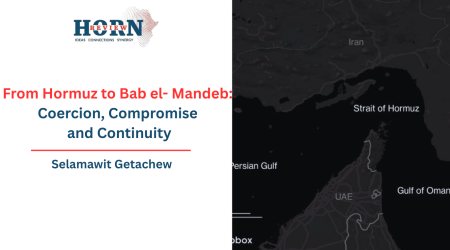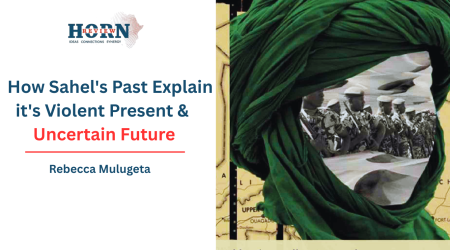
18
Oct
How the Arab Spring Push Egypt to Abandon its African Diplomacy
The official reception of Egypt’s new Ambassador, A. El Dandarawy, into the National Palace of Ethiopia is more than a matter of routine diplomatic protocol and relations; it is the precursor to what can prove a strategic change in one of the most significant African geopolitical realities even if there are some technical gaps left to fill. That the Ambassadorial talks are focused on industrial cooperation and partnership, and this as a sign of a sea change divesting its interest from security threat to mutual economic gain. Bold question asked here, Can economic and industrial cooperation replace the entrenched security concerns that have so long dominated Egypt’s policy towards its upstream neighbor? At the same time Egypt is questioning the GERD legitimacy meeting with president Donald Trump.
Egyptian foreign policy has always been characterized by the complicated and conflicted relationship with Africa. Egypt has generally had an inclination towards evading and neglecting the continent in its strategic and geopolitical agendas that focused on other regions of interest, in particular the Arab world and the Mediterranean. This style started notably after the demise of pan-Arabism after the period of Gamal Abdel Nasser and was reconfirmed by leaders like Anwar el-Sadat and Hosni Mubarak, who instead focused their energies on more closeness with the Arab world as well as the West, with a priority on regime security and regional stability rather mostly in the Middle East and North Africa. Africa and sub-Saharan Africa in general were maintained at arm’s length from Egyptian foreign policy, despite the fact that the continent became progressively geopolitically and economically important.
This marginalization has deep historical roots. It is no coincidence that Egypt considered Nile basin nations, especially Ethiopia, as less friends and more rivals and potential enemies of its principal water security. Ethiopia’s increasing sovereignty over the Blue Nile development, represented by the Grand Ethiopian Renaissance Dam (GERD), shattered Egypt’s de facto monopoly of Nile waters. This was a result of an emotive, zero-sum water diplomacy mindset that barred Egypt from engaging more positively with Africa in general. This water insecurity of the Nile combined with the colonial mindset to inhibit a vision of African diplomacy based on integration or regional unity.
What came in the aftermath of the Arab spring, how did this event 2011 impacted Egypt’s direction of attention away from Africa? The 2011 Arab Spring forces blew these on a grand scale. The later revolutionary chaos and political unrest in Egypt directed its foreign policy inward, away from Africa and towards more proximate local concerns and security issues in the Arab world and Mediterranean. Islamist uprisings, Syrian, Libyan, and Yemeni wars, and requirements for regime survival distracted Cairo’s attention and energies from active African engagement. During the pre-Arab Spring era, Egypt under Mubarak possessed a more settled and multilateral African foreign policy sensitive to Egypt’s traditional role as an Arab-African bridge. Egypt spearheaded the establishment of the Organization of African Unity (OAU) in 1963, largely determining its charter that emphasized sovereignty and anti-colonialism, and supporting liberation movements around Africa with military and diplomatic support.
Mubarak chaired the OAU twice, focusing on economic development and peacekeeping. The Arab Spring shattered this stability. Governments in Egypt after 2011, particularly the Muslim Brotherhood, rerouted Egyptian foreign policy towards Islamism and Gulf relations, eroding traditional African relationships. The 2013 military coup and suspension from the African Union further isolated Cairo. Other experts also state that the attempt of assassination of housni Mubarak by muslim Brotherhood members also distanced their foreign policy from their African neighbors. Its continental diplomacy was restricted to immediate neighbors like Libya and Sudan, and in particular to stemming Libyan civil war spillovers. In his years in office, President Abdel Fattah el-Sisi renewed Egypt’s African aspirations but rearticulated them into a more activist-securitized language.
Having been re-admitted to the African Union in 2014, Egypt had reopened its agenda with enthusiasm, focusing on initiatives in counterterrorism, post-conflict reconstruction, and economic integration. This reactivation was, nevertheless, coupled with heightened hardness in the Nile file, particularly in GERD, with regular recourse to military threats and pursuit of strategic alignments with Sudan to coerce Ethiopia. Egypt’s broader military involvement in Libya, Libyan National Army support, and Sahel interventions are all contrary to Mubarak’s development-first approach and now have Cairo preoccupied with regime security and battling Islamist militancy.
In addition, Egypt’s military and diplomatic intervention in Sudan and Somalia respond to an underlying strategic calculation meant more to impede Ethiopian regional aspirations than to promote true African unity. Egypt’s sending troops to the AU peacekeeping force in Somalia and its high-visibility participation in Sudan’s precarious political process illustrate the use of these nations as proxy war zones against Addis Ababa plans.
This strategy replicates competition and containment, derails cooperative pan-African aspirations, and destabilizes already fragile regional balances.
This is a basic strategic question: Why is Egypt still looking at Africa in threat and competition lenses when the continent is replete with possibilities for cooperation and economic growth? Has the Arab Spring immobilized a short-term security-focused foreign policy at the expense of longer-term engagement on the continent? And perhaps most importantly, can Egypt reconcile its Nile-focused priorities with broader, more expansive African diplomacy in order to build regional stability and prosperity? Recent promising signs, such as the assignment of a new Egyptian ambassador to Ethiopia in 2025 and Addis Ababa’s eagerness to boost bilateral relations, suggest that change is near.
Egypt’s work at this point is to transition beyond mistrust and proxy rivalry into the sphere of multi-sectoral cooperation that entails water diplomacy, economic cooperation, infrastructural development, and security cooperation. Investment in diplomatic infrastructure and multilateral institutions has the potential to rebuild confidence and allow Egypt and its neighbors to cooperate and to work through shared challenges. Egypt’s Arab Spring-born bid to bypass Africa has sown regional instability by cultivating non-win-win competition and proxy wars, particularly in the Horn of Africa. But through visionary diplomacy and rebalancing strategically to embrace Africa inclusively, and reorient its foreign policy away from containment towards the true partnership is not only better but imperative to Egypt’s own destiny.
By Rebecca Mulugeta, Researcher, Horn Review










